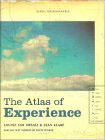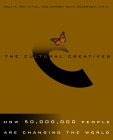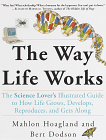|
|

Prior Quotes of the Week
Fourth Quarter, 2000
(Titles that are linked may be ordered online.)
| Network
Economies & Social Capital |
|
|  The
classic theory of the firm laid out by Ronald Coase in 1937 argues that
hiearchies exist because of transaction costs. A complex activity like
building cars could be done in theory, by small, decentralized firms contracting
with one another to produce all of the component parts, with separate
companies providing design, systems integration, and marketing. The reason
cars are not made this way by giant, vertically integrated firms is that
the costs of all of the negotiating, contracting, and litigating required
to outsource everything are much greater than the cost of bringing these
activities in-house, where the firm can control the quality of all the
inputs and outputs by managerial fiat. ... The
classic theory of the firm laid out by Ronald Coase in 1937 argues that
hiearchies exist because of transaction costs. A complex activity like
building cars could be done in theory, by small, decentralized firms contracting
with one another to produce all of the component parts, with separate
companies providing design, systems integration, and marketing. The reason
cars are not made this way by giant, vertically integrated firms is that
the costs of all of the negotiating, contracting, and litigating required
to outsource everything are much greater than the cost of bringing these
activities in-house, where the firm can control the quality of all the
inputs and outputs by managerial fiat. ...
If we understood a network not as a type of formal organization,
but as social capital, we will have much better insight into what a network's
economic function is. By this view, a network is a moral relationship
of trust: A network is a group of individual agents who share informal
norms or values beyond those necessary for ordinary market transactions.
...
A network is different from a market insofar as networks
are defined by their shared norms and values. This means the economic
exchange within a network will be conducted on a different basis from
economic transactions in a market. A purist might argue that even market
transactions require some shared norms, but the norms required for economic
exchange are relatively minimal. Exchange can occur between people who
don't know or like one another, or who speak different languages; indeed,
it can occur anonymously between agents who never know each other's identities.
Exchange among members of a network is different. The shared norms give
them a superordinate purpose that distorts the market relationship. ...
They are much more willing to engage in reciprocal exchange
in addition to market exchange - for example, conferring benefits without
expecting immediate benefits in return. Although they may expect long-term
individual returns, the exchange relationship is not simultaneous and
is not dependent on a careful cost-benefit calculation as it is in a market
transaction. |
| |
Quote #200: 2000.12.13 |
| Keep
Some Dirt in There Somewhere |
|
 The
word improvisation derives from the Latin im + provisus,
meaning 'not provided' or 'not foreseen.' In some sense, all artistic creation
depends on the ability to improvise, to extemporize an unscripted drama,
to blow a note not heard before, to fill the blank canvas of the moment.
But in the making of jazz music, improvisation is a definitive hallmark,
a sine qua non: a something without which, not. Jazz is substantially
a performer's art where any charts or notations are provisional guideposts,
notes indicating a work's general direction but never its final lines or
last word. It is a music in the oral tradition, one in which a composer/arranger's
latest changes may be shouted out during on-stage performance and where
the performer may introduce a shift in direction while playing, in the unforeseen
moment of jazz creation. The
word improvisation derives from the Latin im + provisus,
meaning 'not provided' or 'not foreseen.' In some sense, all artistic creation
depends on the ability to improvise, to extemporize an unscripted drama,
to blow a note not heard before, to fill the blank canvas of the moment.
But in the making of jazz music, improvisation is a definitive hallmark,
a sine qua non: a something without which, not. Jazz is substantially
a performer's art where any charts or notations are provisional guideposts,
notes indicating a work's general direction but never its final lines or
last word. It is a music in the oral tradition, one in which a composer/arranger's
latest changes may be shouted out during on-stage performance and where
the performer may introduce a shift in direction while playing, in the unforeseen
moment of jazz creation.
Jazz's improvised character is balanced with the fact that it is never
a free-for-all; it has both an improvised freshness as well as a composer/arranger's
sense of completeness and finish. Duke Ellington told his band to play the
notes as written but also 'to keep some dirt in there, somewhere.' In other
words, even when Ellington's band played pieces with no solo spaces indicated,
he wanted his players to keep the made-up-on-the-spot dimension, something
the score expected but did not ask for explicitly, something of the performers'
improvised own, some 'dirt.' |
| |
Quote #199: 2000.12.06 |
| Finding
Order in Experience |
|
 The
individual of high originality, having opened himself to such a rich and
varied range of experience, exhibits an extraordinary capacity to find the
order that underlies that varied range of experience, I would even say an
extraordinary capacity to impose order on experience.... The
individual of high originality, having opened himself to such a rich and
varied range of experience, exhibits an extraordinary capacity to find the
order that underlies that varied range of experience, I would even say an
extraordinary capacity to impose order on experience....
This aspect of the creative process has not received the emphasis
it deserves. We have made much of the fact that the innovator frees himself
from old patterns and have neglected to emphasize that he does so in order
to forge new patterns. This, if you reflect on it, suggests a picture of
the creative individual fundamentally different from the romanticized version
. . . that people of high originality are somehow lawless. But the truly
creative man is not an outlaw but a lawmaker. Every creative performance
since the initial one has been in some measure a bringing of order out of
chaos. It brings about a new relatedness, connects things that did not previously
seem connected, sketches a more embracing framework, moves towards larger
and more inclusive understandings. |
| |
Quote #198: 2000.11.30 |
| The-Way-Things-Are-Meant-To-Be |
|
I
may have worked at my desk morning after morning trying to find a way to
express some important idea. When my 'insight' suddenly breaks through --
which may happen when I am chopping wood in the afternoon -- I experience
a strange lightness in my step as though a great load were  taken
off my shoulders, a sense of joy on a deeper level that continues without
any relation whatever to the mundane tasts that I may be performing at the
time. It cannot be just that the problem at hand has been answered -- that
generally brings only a sense of relief. What is the source of this curious
pleasure? taken
off my shoulders, a sense of joy on a deeper level that continues without
any relation whatever to the mundane tasts that I may be performing at the
time. It cannot be just that the problem at hand has been answered -- that
generally brings only a sense of relief. What is the source of this curious
pleasure?
I propose that it is the experience of this-is-the-way-things-are-meant-to-be.
If only for that moment, we participate in the myth of creation. Order comes
out of disorder, form out of chaos, as it did in the creation of the universe.
The sense of joy comes from our participation, no matter how slight, in
being as such. The paradox is that at that moment we also experience more
vividly our own limitations. We discover the amor fati that Nietzche
writes about -- the love of one's fate. No wonder it gives a sense of ecstasy! |
| |
Quote #197: 2000.11.21 |
|
See What We Mean |
|
|  My
point is simple: we are prepared to see, and we see easily, things for
which our language and culture hand us ready-made labels. When those labels
are lacking, even though the phenomena may be all around us, we may quite
easily fail to see them at all. The perceptual attractors [metaphors]
that we each possess (some coming from without, some coming from within,
some on the scale of mere words, some on a much grander scale) are the
filters through which we scan and sort reality, and thereby they determine
what we perceive on high and low levels. My
point is simple: we are prepared to see, and we see easily, things for
which our language and culture hand us ready-made labels. When those labels
are lacking, even though the phenomena may be all around us, we may quite
easily fail to see them at all. The perceptual attractors [metaphors]
that we each possess (some coming from without, some coming from within,
some on the scale of mere words, some on a much grander scale) are the
filters through which we scan and sort reality, and thereby they determine
what we perceive on high and low levels.
|
| |
Quote #196: 2000.11.15 |
Quote #195
(2000.11.05)
Better Off Forgotten
To live is to forget. And it is better that way. If we
remembered everything, our minds would be a nightmarish clutter. There have
been cases recorded of people who forgot so little that their everyday lives
were totally confused. There was no space for new thoughts or intelligent processing
of information. Friedrich Nietzsche (how could we forget him?) believed that
without forgetting there could be no happiness, no hope, no here and now. 'Whoever
thinks much and too good purpose easily forgets his own experiences, but not
the thoughts which these experiences have called forth.
. . . If human beings were computers (which we aren't) we might
compare our memories to hard-drives which slowly but surely fill up with old
files and file fragments as we get older. And the older we become, the more
difficult it gets for us to process new knowledge and experience. Older people
remember events of thirty years ago more clearly than those of last week. The
American writer and psychologist Lawrence LeShan observes that, for the first
fifty years of our lives, we remember the details of the tasks we have to perform.
But after the age of about sixty we see the world differently. We focus more
on relationships and meanings. Our memory becomes more selective. Instead of
remembering the names of the people we have just met, we focus on the emotional
tone of the meeting. Instead of facts, we remember meaning. Instead of width,
we remember depth. We lose the sharp edges of our memory; but that just makes
us wiser and more able to put things in perspective.
Living is forgetting and forgetting is selecting. We
come into the world as a blank page and leave it fully written. For most of
us, absent-mindedness and oblivion are probably all we have to look forward
to.
Don't remember where you put your keys? Don't worry.
Think of it as your contribution to the advance of human civilisation.
Louise Van Swaaij and Jean Klare, with English text by David
Winner,
The Atlas of Human Experience, pp. 46 - 47,
Bloomsbury, 2000.
Quote #194
(2000.10.26)
Bootstrapping Collective Intelligence
The flashy stories of overnight web millionaires (and
billionaires) became the loudest notes in the symphony of the early web era,
leading many to believe that electronic commerce was the reason for the Web;
this was an easy mistake to make ... But these tales only partially hid a more
fundamental change: Our relationship to knowledge became instantaneous, ubiquitous,
and far more integrated into the fabric of culture than it ever had before....
It's as if a new layer of mind—collective intelligence—enveloped
the Earth as the twentieth century drew to a close. In half a decade, the prosperous population of the Western world found itself drawn into
cyberspace, finding prizes so alluring they became impossible to resist. (Of
course, there was a fair amount of garbage mixed into that mound of jewels.)
Even without promotion, without the endless hype or clever marketing campaigns,
the Web would have been everything it is today because it needs nothing more
than itself to be the all-consuming object of human fascination. It has become
the ultimate seductive technology—because we all worked to build it, adding
our own individual identities to the whole.
decade, the prosperous population of the Western world found itself drawn into
cyberspace, finding prizes so alluring they became impossible to resist. (Of
course, there was a fair amount of garbage mixed into that mound of jewels.)
Even without promotion, without the endless hype or clever marketing campaigns,
the Web would have been everything it is today because it needs nothing more
than itself to be the all-consuming object of human fascination. It has become
the ultimate seductive technology—because we all worked to build it, adding
our own individual identities to the whole.
Mark Pesce , The
Playful World: How Technology is Transforming our Imagination,
pp. 163 - 164, Ballantine Books, 2000.
Quote #193
(2000.10.19)
Escaping to Higher Order
But what about the transitions, those risers on the stairsteps
of cultural change? How does a system that self-corrects ever grow and change?
...As a system wanders further and further from equilibrium, it begins to take
on chaotic and unpredictable fluctuations. These aren't just random changes,
and they're not cyclical either. They are literally chaotic—one consequence
of which is a fascinating underlying dynamism that systems analysts call "hunting."
The fluctuations seem to hunt for new possibilities, as if the whole system
were searching for a new evolutionary level—not just any new level but
a more successful way of life than it has had before.
Unconscious systems like cells and amoebas might make many thousands of
tries, millions even, before they arrive at the next higher level. Once they
find that level, the system preserves it. More conscious systems like human
societies might be able to reach their new level with only a few dozen or a
few hundred tries. In every kind of living system, evolutionary leaps are likely
to be preceded by chaotic searches and stumblings into crises that cannot be
resolved at the old level. The system, in effect, falls into a hole. ...there is a possibility that the
system will die at the trough of the hole. It may also fall short of finding
a stable new level or make incomplete transitions with partial failures. The
evolution of a living system is really that uncertain. But what gives humans
a considerable evolutionary advantage is that we can learn from our mistakes,
or even plan ahead—if we can make sense of what is happening.
The system, in effect, falls into a hole. ...there is a possibility that the
system will die at the trough of the hole. It may also fall short of finding
a stable new level or make incomplete transitions with partial failures. The
evolution of a living system is really that uncertain. But what gives humans
a considerable evolutionary advantage is that we can learn from our mistakes,
or even plan ahead—if we can make sense of what is happening.
Paul H. Ray & Sherry Ruth Anderson, The
Cultural Creatives: How 50 Million People are Changing the World,
pp. 249 - 250, Harmony Books, 2000.
Quote #192
(2000.10.11)
Slow Motion Solutions
There are two ways to make systems fault-tolerant: One
is to make them small, so that correction is local and quick; the other is to
make them slow, so that correction has time to permeate the system. When you
proceed too rapidly with something mistakes cascade, whereas when you proceed
slowly mistakes instruct. Gradual, incremental projects engage the full power
of learning and discovery, and they are able to back out of problems. Gradually
emergent processes get steadily better of over time, while quickly imposed processes
often get worse over time.
The astonishing sophistication of ancient poems such as The Iliad,
The Odyssey, and Beowulf long has baffled scholars. How could
Homer be such a genius? Recent study of illiterate bards in our own day shows
that they are always partially improvising for every performance, which solves
the problem. The genius of "Homer" was the accumulated ideas of generations
of bardic improvisation. The Iliad is so effective because it is so highly
evolved. Likewise, science truly took off in the seventeenth century when the
Royal Society introduced the idea of scientific "letter" (now "paper"),
which encouraged a torrent of small, incremental additions to scientific knowledge.
Except for open-ended endeavors like science, the tremendously powerful
lever of time has seldom been employed.  The
pyramids of Egypt and Central America took only fifty years to build. Some of
the great cathedrals of Europe indeed were built over centuries, but that was
due to funding problems rather than patience. Humanity's heroic goals generally
have been sought through quick, spectacular action ("We will land a man
on the moon in this decade") instead of a sustained accumulation of smaller,
distributed efforts that might have an overwhelming effect over time.... The
pyramids of Egypt and Central America took only fifty years to build. Some of
the great cathedrals of Europe indeed were built over centuries, but that was
due to funding problems rather than patience. Humanity's heroic goals generally
have been sought through quick, spectacular action ("We will land a man
on the moon in this decade") instead of a sustained accumulation of smaller,
distributed efforts that might have an overwhelming effect over time....
Stewart Brand, The
Clock of the Long Now: Time and Responsibility, pp.
1:56 - 1:57, Basic Books, 1999.
Quote #192
(2000.10.01)
Does Your Company Behave Like a Superorganism?
The social insects – bees, termites, and ants –
provide one of the best examples of the way in which sophisticated behavior
emerges from the interactions of simpler entities. Just as an organism "knows"
more than any of its individual cells, an ant colony knows more than any single
ant.
Ants, though nearly blind, display a remarkable sensitivity to chemical
signals. They use these various substances to send simple messages, such as
"follow my trail," "I'm a colony member," "on guard!"
"help!" "I'm over here," etc. Biologist E.O. Wilson, a noted
expert on ant behavior, suggests that an individual ant can probably send and
receive some 15 different messages.
Imagine several scout ants out foraging for food. One stumbles upon some
honey, and drawing upon her repertoire, she deposits a series of chemical messages
saying "follow my trail" as she heads for home. The other scouts,
having searched for food in vain, leave no returning trail. Sisters in the colony
immediately pick up the trail left by the successful ant and go directly to
the honey – each one reinforcing the trail on her return. Very quickly,
a long column of ants makes its way directly to the food. The appear to follow
each other, but in fact each one follows its nose(or, more accurately, its antennae),
bumping into and stumbling over those returning with food. Notice that in this
scenario, a random search quickly becomes an organized effort, even though each
ant simply follows its own rules.
Clearly, the sharing of information brings an ant colony to a level of
complexity (some even call it intelligence) not found in the individual ant.
This is why some biologists refer to colonies of ants, bees, and termites as
"superorganisms."
 Mahlon
Hoagland & Bert Dodson, The
Way Life Works: Everything You Need to Know About the Way All Life Grows,
Develops, Reproduces, and Gets Along, pp.
150, Times Books, 1995. Mahlon
Hoagland & Bert Dodson, The
Way Life Works: Everything You Need to Know About the Way All Life Grows,
Develops, Reproduces, and Gets Along, pp.
150, Times Books, 1995.
Related Links:
"Rules for Flocking Behavior in the Web"
http://www.mgtaylor.com/mgtaylor/jotm/spring97/flock.htm
Out of Control: The New Biology of Machines, Social Systems, and the Economic
World, by Kevin Kelly
http://panushka.absolutvodka.com/kelly/5-0.html
Other Prior Quotes:
Third Quarter, 2000
Second Quarter, 2000
First Quarter, 2000
Fourth Quarter, 1999
Third Quarter, 1999
Second Quarter, 1999
First Quarter, 1999
Fourth Quarter, 1998
Third Quarter, 1998
Second Quarter, 1998
First Quarter, 1998

copyrights,
terms and conditions
20001010.8110.wtj
|





















